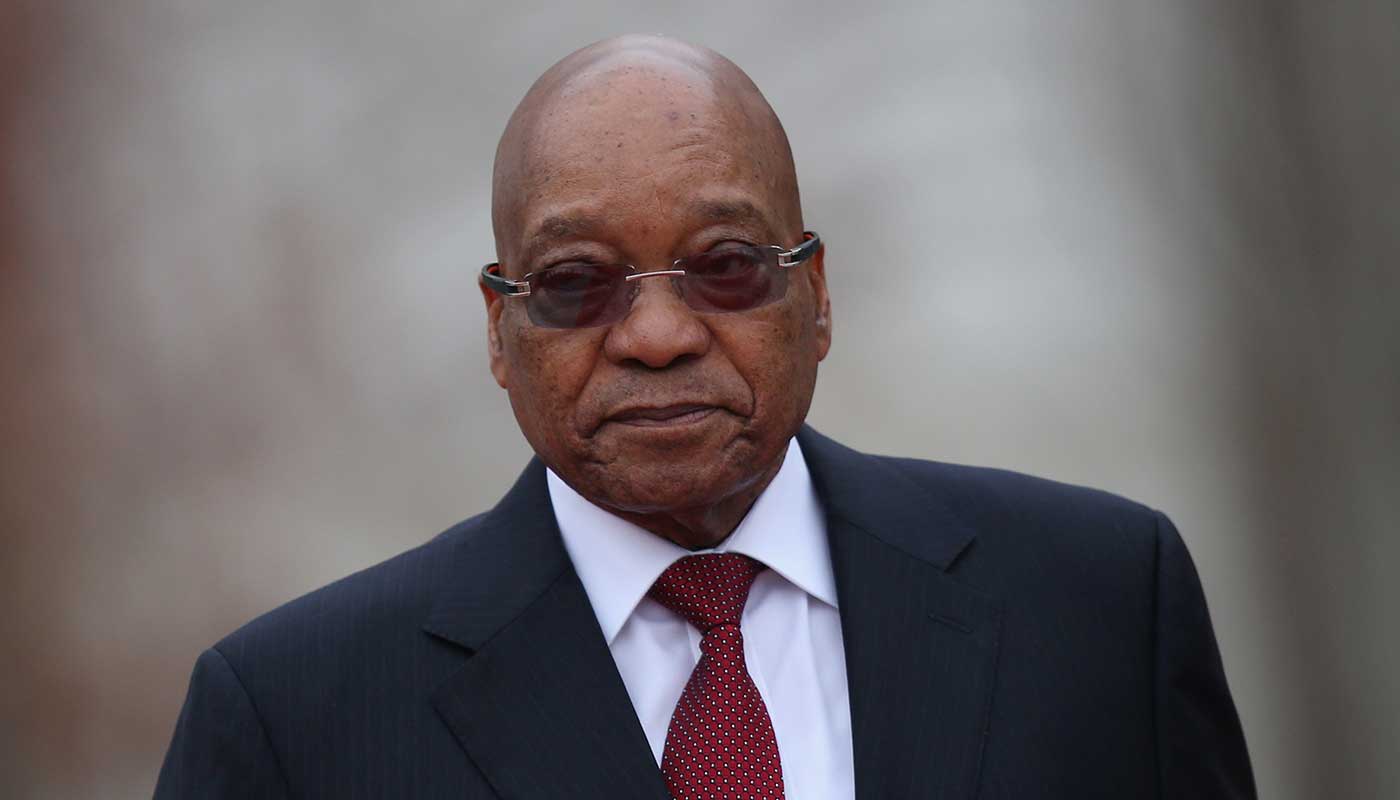ANC orders Zuma to resign as South African president
Leader refuses to quit for at least three months despite pressure

A free daily email with the biggest news stories of the day – and the best features from TheWeek.com
You are now subscribed
Your newsletter sign-up was successful
South Africa’s ruling African National Congress (ANC) party has formally asked President Jacob Zuma to resign, following marathon talks by senior party officials.
ANC secretary-general Ace Magashule told reporters that the National Executive Committee decided Zuma’s departure should be "treated with urgency", the BBC reports, but the 75-year-old has agreed only to step down within the next three to six months.
ANC leader Cyril Ramaphosa reportedly left a 13-hour executive committee meeting around midnight last night local time and drove to the president’s official residence to deliver an ultimatum to Zuma.
The Week
Escape your echo chamber. Get the facts behind the news, plus analysis from multiple perspectives.

Sign up for The Week's Free Newsletters
From our morning news briefing to a weekly Good News Newsletter, get the best of The Week delivered directly to your inbox.
From our morning news briefing to a weekly Good News Newsletter, get the best of The Week delivered directly to your inbox.
The ANC “has the authority to order Zuma to step down as head of state”, Reuters says, but the party has no constitutional power to remove the president from office if he refuses to abide by the decision.
The move comes after weeks of mounting pressure for Zuma to resign after nine years as president, which have been “marred by economic decline and multiple charges of corruption,” The Guardian says.
Zuma is also facing a no-confidence motion in parliament, scheduled for 22 February.
Opposition leader Mmusi Maimane, who heads the Democratic Alliance party, has announced that opposition parties would back the no-confidence motion, and has called for early elections to bring an end to the turmoil.
A free daily email with the biggest news stories of the day – and the best features from TheWeek.com
-
 Nuuk becomes ground zero for Greenland’s diplomatic straits
Nuuk becomes ground zero for Greenland’s diplomatic straitsIN THE SPOTLIGHT A flurry of new consular activity in the remote Danish protectorate shows how important Greenland has become to Europeans’ anxiety about American imperialism
-
 ‘This is something that happens all too often’
‘This is something that happens all too often’Instant Opinion Opinion, comment and editorials of the day
-
 House votes to end Trump’s Canada tariffs
House votes to end Trump’s Canada tariffsSpeed Read Six Republicans joined with Democrats to repeal the president’s tariffs
-
 Epstein files topple law CEO, roil UK government
Epstein files topple law CEO, roil UK governmentSpeed Read Peter Mandelson, Britain’s former ambassador to the US, is caught up in the scandal
-
 Iran and US prepare to meet after skirmishes
Iran and US prepare to meet after skirmishesSpeed Read The incident comes amid heightened tensions in the Middle East
-
 Israel retrieves final hostage’s body from Gaza
Israel retrieves final hostage’s body from GazaSpeed Read The 24-year-old police officer was killed during the initial Hamas attack
-
 China’s Xi targets top general in growing purge
China’s Xi targets top general in growing purgeSpeed Read Zhang Youxia is being investigated over ‘grave violations’ of the law
-
 Panama and Canada are negotiating over a crucial copper mine
Panama and Canada are negotiating over a crucial copper mineIn the Spotlight Panama is set to make a final decision on the mine this summer
-
 Why Greenland’s natural resources are nearly impossible to mine
Why Greenland’s natural resources are nearly impossible to mineThe Explainer The country’s natural landscape makes the task extremely difficult
-
 Iran cuts internet as protests escalate
Iran cuts internet as protests escalateSpeed Reada Government buildings across the country have been set on fire
-
 US nabs ‘shadow’ tanker claimed by Russia
US nabs ‘shadow’ tanker claimed by RussiaSpeed Read The ship was one of two vessels seized by the US military